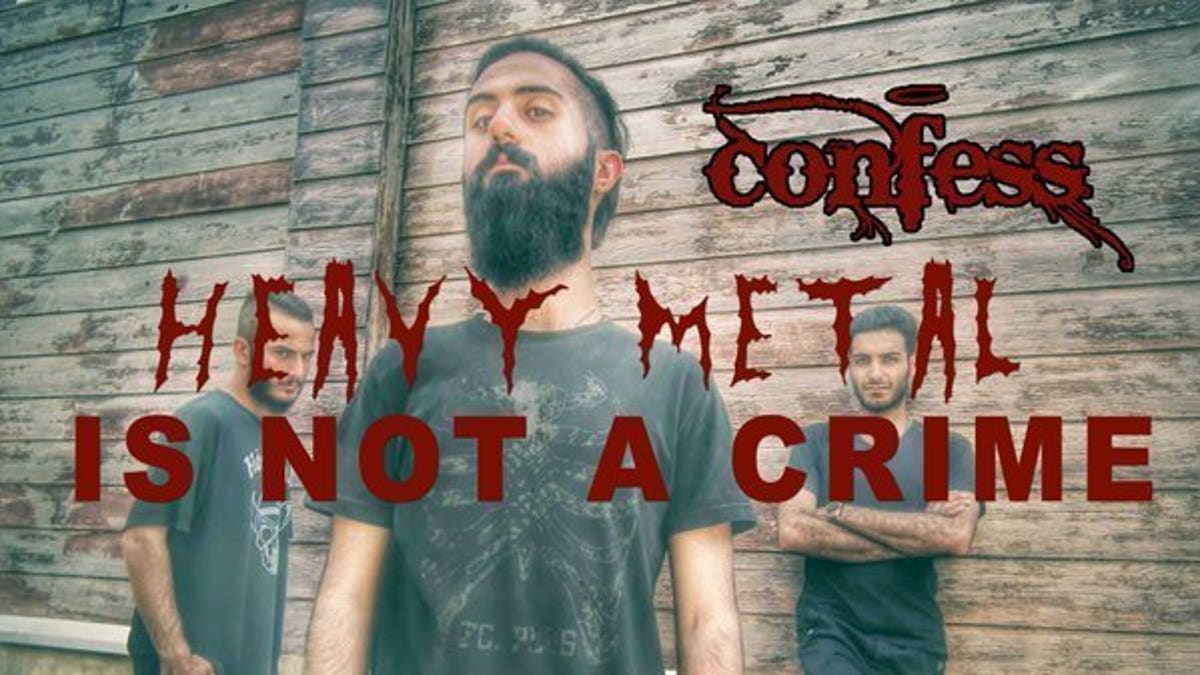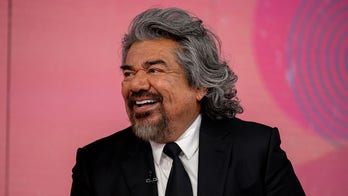
Change.org (Change.org)
Members of an Iranian heavy metal band are reportedly facing possible execution for playing music the government says is blasphemous.
Two musicians in the band Confess -- vocalist/guitarist Nikan Siyanor Khosravi, 23, and DJ Khosravi Arash “Chemical” Ilkhani, 21 -- were arrested in their hometown of Tehran on November 10, 2015by the Army of Guardians of the Islamic Revolution, according to the music blog Loudwire.
Citing a letter from a friend of the band posted on the Canadian music site Metal Nation Radio, it says the two were charged with blasphemy, advertising against the system, forming and operating an underground record label that promotes the satanic metal/rock style of music, writing religious, atheistic, political and anarchistic lyrics, and interviewing with radio stations based in other nations.
The letter said the pair had been held in Iran’s notorious Evin prison for nearly two months in solitary confinement, were only released on Feb. 5 after they paid 1,000,000,000 Rial (about $30,000), and now await trial.
Trev McKendry, who posted the anonymous letter on Metal Nation Radio, posted a video on YouTube telling Confess that the global heavy metal community is behind them.
"I've taken [spreading the word] upon myself because my source, who is close to the band, reached out to me and specifically said that they asked me to help,” McKendry said in the video.
Nearly all forms of rock music are illegal in Iran and musicians who break the law are often arrested, forced to pay heavy fines, and receive public floggings. But the penalties Confess could face seem to be even more severe.
The executive director of Washington, DC-based human rights organization Abdorrahman Boroumand Foundation, Roya Boroumand, said sources told her the two could indeed be charged with apostasy due the content of songs such as “I'm Your God Now” and “Teh-Hell-Ran.”
“They could be facing some serious charges,” Boroumand told FOX411.
A rep for Human Rights Watch explained that if the musicians are convicted of “insulting sacred beliefs,” they face one to five years in prison, and if they are convicted of “insulting the prophet,” they could receive the death penalty. Executions in Iran are often carried out in public squares, with the condemned hanged from cranes.
Such harsh consequences force most rockers in Iran to keep their music under the radar.
“If you are discreet about your music, the Revolutionary Guard may leave you alone. They say, ‘Do your thing underground. Don’t make a lot of noise and we won’t come after you,” Boroumand told FOX411. “But if a group of musicians start publicly promoting their music, the Guard sees it as leading the youth to not be in control, and then they want to teach a lesson and set an example.”
Musicians are also supporting Confess using the social media hashtag #freeconfess, and Otep Shamaya, the singer for Los Angeles-based metal group OTEP, even started a change.org petition for the band because she believes every artist has the right to free expression, no matter where they live.
“It’s infuriating to know that this band was in prison and could face death just for making an art form and speaking their own truth,” Shamaya told FOX411. “What is also important here is that not everyone in Iran is an extremist and that there are many there who still value self-expression. They [Confess] took a chance to make art that they felt compelled to do.”
So far, Shamaya's petition has gotten over 8,000 signatures.
Rock music has been forbidden in Iran since the Islamic revolution of 1979. The ban inspired the British punk band The Clash to write the 1982 hit “Rock the Casbah.”
Concerts in Iran are now are heavily restricted. Rock bands might be able to get permission from the government to perform live on stage, but their music must be instrumental, and if there are lyrics, they must be in Persian and approved by the Ministry of Culture.
“The bands which exist in Iran have no possibility to be in public,” Fateme Gosheh, an Iranian documentarian who now lives in Sweden, told FOX411. “But these young people do not give up. You can find their music everywhere, but like drugs, it is forbidden.”






